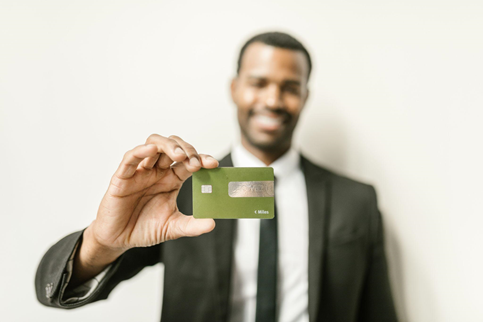
With a fresh sheepskin in hand and a shining future far off on the horizon, a lot of students enter the real world with barely a cent in their pockets. Graduating is a definite milestone in many people’s lives, yet there’s the hanging Sword of Damocles of student loans, and steady, stable income may be out of grasp in a chaotic job economy. Not only that, credit card companies may not even give new graduates more than a courtesy smile if they try to apply for cards with favorable terms.
Most creditors will not hand out large limit credit cards to young adults as they are seen as volatile and untrustworthy borrowers. After all, most people who come fresh out of college or high school do not have any sort of credit history. Students at universities may have a loan or two on their history, but that’s not usually enough to convince a credit card company that the student is reliable. Keep in mind that most adults don’t start making payments for their students until after they graduate, so there’s no payment history for the lender to look at and see any responsible behavior.
Luckily for those who never held a credit card or revolving line of credit before, there are ways to start building up good credit while in pursuit of better credit cards or even loans.

To show creditors and credit card companies that you are responsible, start making payments on those student loans. On credit reports, student loans are reported as an installment-based account–similar to a car loan or mortgage. However, if the student is fresh out of college, these loans may start popping up more and more frequently on a credit report, even duplicating themselves. This can be both good and bad, depending on how the student approaches their student loan.
The most important thing when it comes to student loans is not paying them off right away (although that would definitely help and be a big bonus) but to pay the loans on time. Not many graduates have the money to pay them off right away or else they would have paid their tuition in full in the first place.
Paying any loan on time will show creditors and anyone who pulls up a credit report that the person is financially responsible. Late payments on any line of credit or installment loan will be detrimental to that person’s credit score and overall credit history. Late payments and students loans can last up to 10 years, so make sure to pay those loans on time, even if it’s the minimum amount.
Another option is to apply for a secure credit card, which differs from a regular credit card. Mainly, the secure credit card is purposely designed by creditors to evaluate the creditworthiness and trust of a new customer.
Secure credit cards require a cash deposit up to the card’s limit. This can range anywhere from $200 to $1000, depending on the card and company. The important thing to note about these cards is that they will have a low line of credit, but that’s kind of the point. If a fresh, new graduate has never had a credit card before, this would be a perfect start in building new credit.
The deposit will set the limit of the card. The cardholder then should use the card for small things: groceries, streaming services, or a pack of gum. Use it once a month or so, and the credit card company will eventually (usually after six months) offer a regular credit card with a much higher limit. After getting the new credit card, they will either refund the deposit or put it into the card’s balance. Like with the loans above, DO NOT be late with any payments for this card. A single late payment will do a lot of harm to your credit score.
A quick tip when it comes to these cards: do not go over 30% of the debt/limit ratio; i.e., a $200 limit card should not have a balance over $60. This is another fact in how credit bureaus calculate credit scores. Luckily, this is not permanent, so don’t fret if your card goes over that limit as long the limit goes back down in the future.

Regardless of credit or history, many students and graduates will have a checking account with a bank or credit union of some kind. If a student has a checking account in good standing with their bank, the bank itself may offer pre-approved credit cards with no hard inquiry or deposit needed.
What this means is that it may be easy to grab that first line of revolving credit through a bank rather than going to a credit card company. Be sure to check with your preferred bank or credit union and see if they offer a credit card.
It may seem like a responsible thing to avoid credit altogether and pay everything in cash; however, no one knows what the future may hold. Even to those who may feel like they don’t need a new line of credit, it will still be beneficial to have an open credit card to build credit for the future.
Most basic credit cards do not incur any sort of annual fee. Creditors make their money on the interest rates that are slapped onto the card itself rather than a flat-rate annual fee. Yet there’s a simple and easy way to avoid any sort of interest: Pay it off. Having a high limit card will help build a credit score over time. The only thing that needs to be done to keep it open is to use it every once in a while on something small. Truthfully, credit card companies absolutely hate this because they can’t make any money. If the card is paid off in full after every small purchase, there will be no interest fee.

Having a credit history can be important even beyond having to take out a car loan or mortgage. Many apartments, building managers, and land companies do a credit check for new tenants to check for their financial stability or trustworthiness. If someone who has no debt but also no credit history seeks a new place to rent, they may get turned down because they have no visible credit history. The same goes for prospective job applicants as well. Some employers will do a credit check on prospective new employees.
If you have any questions, feel free to give us a call at 877-212-2450!
We also invite you to click on the following link to see our reviews on yelp.
You may also like : Identity Theft and How to Recover Your Credit History
